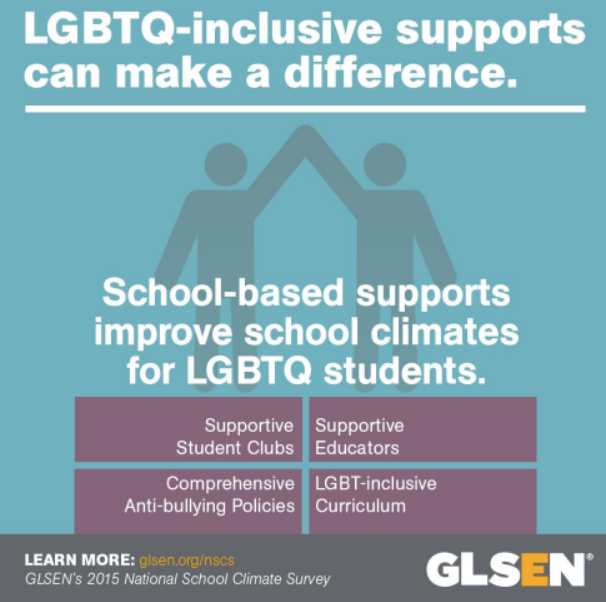Highlighting transgender rights and policies in schools
Photo courtesy of Garden State Equality
A slide from the presentation shown at the department meeting
In recent years, New Jersey has joined other states in signing bills that protect and uphold the rights of transgender students in schools. Former New Jersey Governor Chris Christie signed Bill S3067/A4652 into law in 2017, which reinforced protections for transgender students.
Under this bill, students cannot be forced to use bathrooms or locker rooms that conflict with their gender identity. Students also have the right to change their name in school and on school forms without approval from parents or administration. Additionally, they have the right to participate in the sport that represents the gender they identify with.
Currently, the nurse’s office contains a gender-neutral bathroom to comply with the policy, though not all are in agreement with this set-up. “The nurse is where you go when you are sick or injured,” English Teacher Elizabeth Palamara said. “This is not the kind of messaging that will make trans and non-binary students feel accepted.” The nurse’s office is also accommodating to students who would prefer to change in a non-gendered locker room.
Despite this bill being passed four years ago, it has been largely overshadowed by the pandemic and distance learning protocols. As a result, many teachers and students are unfamiliar with the policies under this bill. In an effort to recognize these policies, there has been training for some departments, but no school-wide training has been conducted yet.
This past fall, the English and Social Studies departments at WHS brought in speakers from Garden State Equality (GSE), an organization that advocates for the New Jersey LGBTQ+ community. English Supervisor Elizabeth Reilly said, “Mrs. Brennan and I felt it was important for there to be a discussion to allow for a common understanding regarding the equitable and supportive treatment of transgender students.” Reilly saw this as an opportunity to continue learning and the training included “a discussion of terminology, the New Jersey Department of Education Transgender Guidance from School Districts and best practices in working with LGTBQ+ students.”
Project Manager and Activist Damien Lopez co-led the training. He said that he always encourages his listeners to be vulnerable and share their stories to make training more personable and impactful. “It really reminds us that we are all human and ultimately fighting for the same cause – for our stories and voices to be heard,” Lopez said.
It is important that teachers and staff “have the proper tools and language to communicate with their students,” said Jahmila Smith, who assisted Lopez in the GSE training.
In an effort to be better allies, many teachers asked for students’ preferred pronouns at the beginning of the school year.
However, some teachers feel more training needs to be done to further educate the staff on these policies. “I don’t know why only two departments were included in this training. I think it is incredibly important that the entire school receives training as soon as possible,” said English Teacher Rebecca McGrath.
Maureen Mazzarese, Director of Guidance, shared a similar sentiment. She hopes that changes to the English and Health curriculums will help educate students on allyship and the LGBTQ+ experience, specifically featuring LGBTQ+ writers or literature in classrooms. In fact, one of Superintendent Raymond González’s objectives is to revise the Health curriculum to be more inclusive.
Mazzarese also emphasized the importance of community in our schools. She said, “It’s important that [inclusivity] comes from teachers and counselors, but it’s also important that these open [conversations] come from students as well.”
Coming out of a period of reflection and growth for everyone, many feel that it is important to understand these policies and provide a safe and accepting community within our school. WHS has started the conversations and taken the first steps in providing education on LGBTQ+ student rights in pursuit of a more inclusive, aware community.

